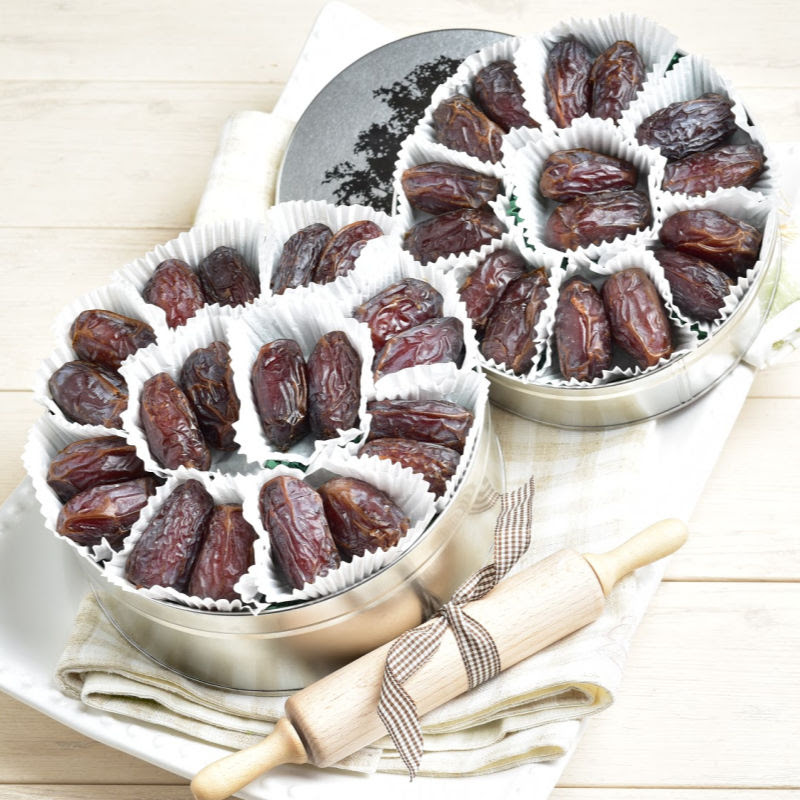Malaysian Dates: Medjool Magic & Processing Potential

Malaysia, a vibrant Southeast Asian nation, might not be the first place that comes to mind when you think of dates. However, this delightful fruit is gaining popularity, driven by factors like increasing health consciousness and religious significance. This blog post delves into the captivating world of Malaysian dates, exploring the potential of Kurma Majol, the current state of the date processing industry, and the exciting possibilities that lie ahead.
Medjool in Malaysia: A Date with Destiny?
The Medjool date, renowned for its large size, rich caramel flavor, and luxurious texture, is a favorite among date enthusiasts worldwide. While Palestine is a prominent producer of Medjool dates, Malaysia is exploring the possibility of cultivating this prized variety domestically.
Kurma majol: While the term “kurma majol” directly translates to “Medjool dates” in Malay, it highlights the potential Malaysia sees in cultivating this variety.
The hot and dry climate in certain regions of Malaysia, like Terengganu and Kedah, offers some promise for Medjool cultivation. However, challenges remain:
- Adaptability: Medjool palms require specific environmental conditions. Research is needed to determine if Malaysian climates can consistently support optimal Medjool growth.
- Pollination: Traditional wind pollination might not be as effective in Malaysia’s humid environment. Alternative pollination techniques might be necessary.
Despite these hurdles, the potential rewards of successfully cultivating Medjool dates in Malaysia are significant. A thriving domestic Medjool industry could:
- Reduce reliance on imports: Malaysia currently imports a large portion of its dates. Domestic Medjool production could lessen dependence on foreign suppliers.
- Boost the economy: A successful Medjool industry could create new jobs and contribute to Malaysia’s agricultural sector.
Beyond the Fresh Fruit: Exploring Date Processing in Malaysia
Is there a date processing industry in Malaysia (e.g., producing date paste, syrups, etc.)?
The Malaysian date industry is still in its early stages, and date processing is a relatively new concept in the country. Currently, most dates consumed in Malaysia are enjoyed in their whole fruit form.
However, there’s growing interest in exploring the potential of date processing. Here’s why:
- Value addition: Date processing can add value to dates, creating new products like date paste, syrup, and date spreads. This could expand the market for Malaysian dates.
- Increased shelf life: Processing techniques like drying or turning dates into paste or syrup can extend their shelf life, reducing spoilage and waste.
- Meeting consumer demand: Consumers are increasingly seeking convenient and healthy snacking options. Date-based products can cater to this growing demand.
While large-scale date processing facilities might not be prevalent yet, some smaller producers and entrepreneurs are venturing into this space. They are exploring traditional and innovative techniques to create date-based products like:
- Date paste: A thick, concentrated paste made from dried and ground dates. It can be used as a natural sweetener in baking, desserts, or even savory dishes.
- Date syrup: A natural sweetener made from pressed dates. It offers a rich caramel-like flavor and can be used as a substitute for sugar in various applications.
- Date spreads: Dates can be blended with nuts, seeds, or other ingredients to create healthy and flavorful spreads for toast, crackers, or fruits.
These initial forays into date processing pave the way for a potentially exciting future in this domain.
A Sweet Conclusion: The Future of Malaysian Dates and Processing
The Malaysian date industry is a tale of exciting possibilities and ongoing exploration. While challenges exist, the dedication to innovation and the potential of Medjool cultivation and date processing paint a promising future. As research progresses, cultivation techniques adapt, and processing capabilities expand, Malaysia has the potential to not only meet its domestic demand for dates but also emerge as a regional player in the date industry, offering both fresh and processed date products to the world.
Key Highlights:
- The potential for cultivating Medjool dates in Malaysia is being explored.
- Date processing is a new concept in Malaysia, but it holds potential for value addition, increased shelf life, and meeting consumer demand.
- The future of Malaysian dates is bright, with possibilities for a thriving domestic industry and the emergence of processed date products.